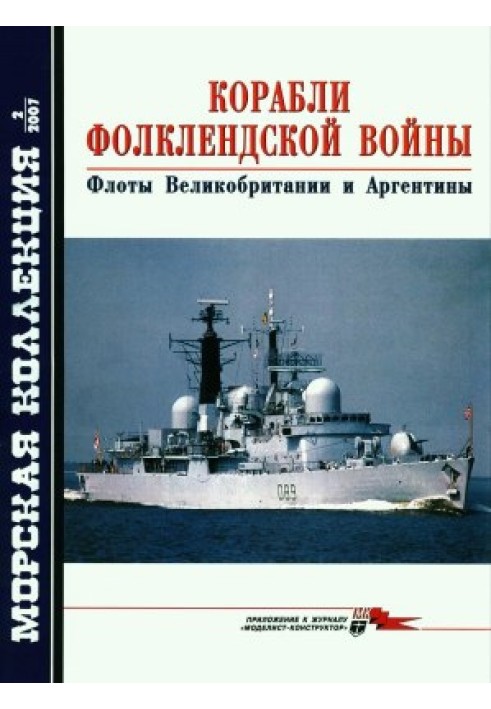Ships of the Falklands War. British and Argentine fleets
 Instant download
Instant download
after payment (24/7)
 Wide range of formats
Wide range of formats
(for all gadgets)
 Full book
Full book
(including for Apple and Android)
By the early 1980s. Great Britain has not been the greatest maritime power for a long time, however, the country had a very significant navy, which included the navy itself, naval aviation and marines. The Navy included submarine and surface forces. The first consisted of four squadrons: one of nuclear missile carriers, two of nuclear multi-purpose submarines and one of diesel submarines. The second consisted of two flotillas of escort ships (each consisting of three squadrons of frigates and one of destroyers), and the third flotilla included two light aircraft carriers, landing helicopter dock ships and one destroyer. A disclaimer must be made here: the British classification of ships at that time looked very peculiar. For example, representatives of the "County" class and type 82 were officially classified as light cruisers, while representatives of the 22 class were classified either as frigates or destroyers. According to experts, Royal Navy clearly lacked landing ships, which did not allow the transfer of a large group of ground forces more than 7,000 miles from the British Isles. However, this problem was solved by attracting mobilized and requisitioned merchant fleet vessels.
Data sheet
- Name of the Author
- Борис Соломонов Владимирович
- Language
- Russian












